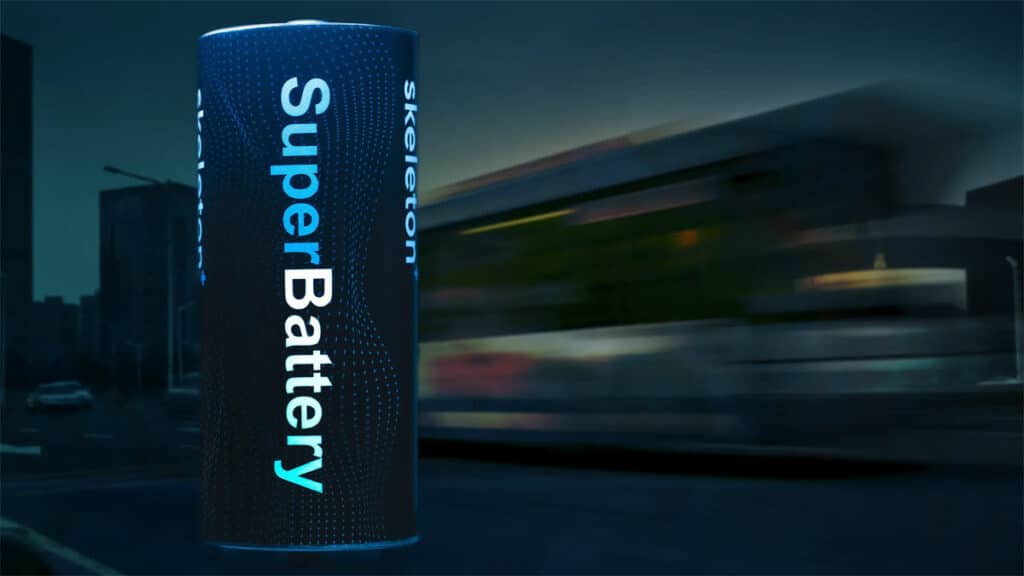Skeleton announced its participation in the Hydrogen IPCEI Hy2Move for the transportation sector, aiming to develop pioneering high-power energy storage solutions that address the functional shortcomings of hydrogen fuel cells (H2FC), extend their lifespan, and increase efficiency.
Skeleton will collaborate with other IPCEI consortium members, including Airbus, BMW, Michelin, Neumann & Esser, and Air Products, to develop SuperBattery-based energy storage power pack—the Hydrogen Booster.
Skeleton’s project aims to reduce the total cost of ownership of hydrogen vehicles and encourage their uptake. Implementing this technology will also reduce the need for critical raw materials and alleviate supply chain dependence on materials outside the European Union.
Estonian government supports Skeleton hydrogen technology development within the framework of the pan-European IPCEI (Important Project of Common European Interest) hydrogen program Hy2Move for mobility and transport applications with EUR 18 million. In total, seven EU member states will provide up to €1.4 billion in public funding, which is expected to unlock additional €3.3 billion in private investments. As part of Hy2Move, 11 companies will undertake and collaborate on 13 projects.
“We are participating in Hy2Move alongside many of the world’s top companies, including BMW, Airbus, and Michelin. If Europe wants to compete with the US and China, then pan-European cooperation is necessary,” said Taavi Madiberk, CEO and co-founder of Skeleton Technologies. “Estonia’s decision to join the hydrogen IPCEI project provided competitive conditions for expanding our headquarters’ activities. Estonian software and engineering talent, paired with the burgeoning hydrogen ecosystem, offers a great growth opportunity for us. We will build on our development and testing center and software units in Tallinn, which already employ world-class electrical, mechanical, hardware, and IT engineers.”
“The knowledge-based economy and the development of new technologies are the future direction of the Estonian economy. It creates new knowledge, high value-added production, and well-paid jobs. Skeleton’s investment to develop new hydrogen technology in Estonia will hopefully give impetus to further investments and the formation of a new type of business ecosystem in the field,” said Tiit Riisalo, Minister of Economy and Information Technology.
“Skeleton’s planned development center is a good example of an innovative clean industry, for which we are creating room for growth with the Climate Safe Economy Act. The Skeleton solution contributes to the reduction of greenhouse gas emissions in the transport sector and provides exciting new opportunities for our smart engineers. Supporting such plans with CO2 funds is a smart use of money,” said Climate Minister Kristen Michal.
Estonia, Germany, France, Spain, Italy, Slovakia, Netherlands are participating in Hy2Move, the fourth hydrogen IPCEI. The programme contributes to the EU’s target of 90% reduction of emissions from the mobility and transport sectors to become climate-neutral by 2050.
Skeleton’s SuperBattery is a game-changer in the world of energy storage. It fills the technological gap between supercapacitors and traditional batteries, offering the ideal combination of energy, power, and safety. Designed for applications that need less than 45 minutes of power, SuperBattery is not just a product – it’s a promise for a more efficient, safer future.
